Alliance of Liberals and Democrats for Europe Party | |
|---|---|
 | |
| Abbreviation | ALDE Party |
| President |
|
| Secretary-General | Didrik de Schaetzen |
| Founded | 26 March 1976 |
| Headquarters | Rue d'Idalie 11, Brussels, Belgium |
| Think tank | European Liberal Forum |
| Youth wing | European Liberal Youth |
| Ideology | Liberalism[1] Pro-Europeanism |
| Political position | Centre |
| International affiliation | Liberal International |
| European Parliament group |
|
| Colours | |
| European Parliament | 68 / 705 |
| European Council | 5 / 27 |
| European Commission | 5 / 27 |
| European Lower Houses | 754 / 9,874 |
| European Upper Houses | 248 / 2,714 |
| Website | |
| aldeparty | |
The Alliance of Liberals and Democrats for Europe Party (ALDE Party) is a European political party composed of 60 national-level parties from across Europe, mainly active in the European Union. The ALDE Party is affiliated with Liberal International and a recognised European political party, incorporated as a non-profit association under Belgian law.[2]
It was founded on 26 March 1976 in Stuttgart as a confederation of national political parties under the name "Federation of Liberal and Democrat Parties in Europe" and renamed "European Liberals and Democrats" (ELD) in 1977 and "European Liberal Democrats and Reformists" (ELDR) in 1986. On 30 April 2004, the ELDR was reformed as an official European party, the "European Liberal Democrat and Reform Party" (ELDR Party).[3]
On 10 November 2012, the party chose its current name ALDE Party, taken from its then-European Parliament group, the Alliance of Liberals and Democrats for Europe (ALDE), which had been formed on 20 July 2004 in conjunction with the European Democratic Party (EDP). Prior to the 2004 European election, the European party had been represented through its own group, the European Liberal Democrat and Reform Party Group (ELDR) Group. In June 2019, the ALDE group was succeeded by Renew Europe.
As of 2020, ALDE is represented in European Union institutions, with 70 MEPs and five members of the European Commission. Of the 27 EU member states, there are four with ALDE-affiliated Prime Ministers: Mark Rutte (VVD) in the Netherlands, Xavier Bettel (DP) in Luxembourg, Kaja Kallas (Estonian Reform Party) in Estonia and Alexander De Croo (Open VLD) in Belgium. ALDE member parties are also in governments in seven other EU member states: Croatia, Finland, Ireland, Latvia, Slovenia, Lithuania and Germany. Some other ALDE member parties offer parliamentary support to governments in Croatia, Denmark, Italy, Romania and Sweden. Charles Michel, former Belgian Prime Minister, is the current President of the European Council.
ALDE's think tank is the European Liberal Forum, led by Hilde Vautmans, MEP, and gathers 46 member organisations. The youth wing of ALDE is the European Liberal Youth (LYMEC), which is predominantly based upon youth and student liberal organisations but contains also a small number of individual members. LYMEC is led by Dan-Aria Sucuri.
In 2011, the ALDE Party became the first pan-European party to create the status of individual membership. Since then, between 1000 and close to 3000 members (the numbers fluctuate annually) have maintained direct membership in the ALDE Party from several EU countries. Over 40 coordinators mobilise liberal ideas, initiatives and expertise across the continent under the leadership of the Steering Committee, which was first chaired by Julie Cantalou. The ALDE Party took a step further in the direction of becoming a truly pan-European party when granting voting rights to individual members’ delegates at the Party Congress.
Structure
| Part of a series on |
| Liberalism |
|---|
 |
Bureau
The day-to-day management of the ALDE Party is handled by the Bureau, the members of which are:[4]
| Office | Name | State member | Party member | |
|---|---|---|---|---|
| Co-Presidents | Senator Timmy Dooley | FF | ||
| Ilhan Kyuchyuk MEP | MRF | |||
| Vice-Presidents | Henrik Bach Mortensen | Venstre | ||
| Dita Charanzová MEP | ANO | |||
| Baroness Sal Brinton | LibDem | |||
| Daniel Berg | M | |||
| Annelou van Egmond | D66 | |||
| Svenja Hahn MEP | FDP | |||
| Kira Rudik MP | Holos | |||
| Treasurer | David Burke | FF | ||
| Ex officio members | ||||
| ALDE Party Secretary-General | Didrik de Schaetzen | |||
| President of Liberal International | Hakima El Haite | / (MP) | ||
| Group Chair in the PACE | Iulian Bulai | / (USR) | ||
| Leader in the European Parliament | Stéphane Séjourné MEP | LREM | ||
| Leader in the European Committee of the Regions | François Decoster | / | ||
| President of the European Liberal Forum | Hilde Vautmans | Open VLD | ||
| President of the European Liberal Youth | Dan-Aria Sucuri | Liberalerna | ||
Presidents
- 1978–1981:
 Gaston Thorn
Gaston Thorn - 1981–1985:
.svg.png.webp) Willy De Clercq
Willy De Clercq - 1985–1990:
 Colette Flesch
Colette Flesch - 1990–1995:
.svg.png.webp) Willy De Clercq
Willy De Clercq - 1995–2000:
 Uffe Ellemann-Jensen
Uffe Ellemann-Jensen - 2000–2005:
 Werner Hoyer
Werner Hoyer - 2005–2011:
.svg.png.webp) Annemie Neyts-Uyttebroeck
Annemie Neyts-Uyttebroeck - 2011–2015:
 Graham Watson
Graham Watson - 2015–2021:
 Hans van Baalen
Hans van Baalen - 2021–2022: acting co-Presidents
 Timmy Dooley
Timmy Dooley  Ilhan Kyuchyuk
Ilhan Kyuchyuk
History of pan-European liberalism

Pan-European liberalism has a long history dating back to the foundation of Liberal International in April 1947. On 26 March 1976, the Federation of Liberal and Democrat Parties in Europe was established in Stuttgart. The founding parties of the federation were the Free Democratic Party of Germany, Radical Party of France, Venstre of Denmark, Italian Liberal Party, Dutch People's Party for Freedom and Democracy and Democratic Party of Luxembourg.[5] Observer members joining later in 1976 were the Danish Social Liberal Party, French Radical Party of the Left and Independent Republicans, British Liberal Party, and Italian Republican Party.[5] In 1977, the federation was renamed European Liberals and Democrats, in 1986, European Liberal Democrats and Reformists.
It evolved into the European Liberal Democrat and Reform Party (ELDR Party) in 2004, when it was founded as an official European party under that name and incorporated under Belgian law at an extraordinary Congress in Brussels, held on 30 April 2004 the day before the enlargement of the European Union. At the same time the matching group in the European Parliament, the European Liberal Democrats and Reformists Group allied with the members of the newly elected European Democratic Party, forming the Alliance of Liberals and Democrats for Europe (ALDE) with a matching ALDE Group in the European Parliament.
On 10 November 2012, the ELDR Party adopted the name of the alliance between the two parties, to match the parliamentary group and the alliance.
On 12 June 2019, the ALDE group was succeeded by a new enlarged group, Renew Europe, which primarily consists of ALDE and EDP member parties and France's La République En Marche! (LREM).[6]
European Commissioners
ALDE Member Parties contribute five out of the 27 members of the European Commission:
| State | Commissioner | Portfolio | Political party | Photo |
|---|---|---|---|---|
| Margrethe Vestager | A Europe Fit for the Digital Age,
Commissioner |
RV | .jpg.webp) | |
| Věra Jourová | Values and Transparency,
Vice President |
ANO | 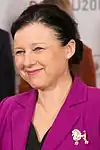 | |
| Janez Lenarčič | Crisis Management,
Commissioner |
Ind. | _-_Crisis_management_(48833246092)_(cropped).jpg.webp) | |
| Kadri Simson | Energy,
Commissioner |
KESK | .jpg.webp) | |
| Didier Reynders | Justice,
Commissioner |
MR | (cropped).jpg.webp) |
Elected representatives of member parties
European institutions
| Organisation | Institution | Number of seats |
|---|---|---|
| European Commission | 5 / 27 | |
| European Council (Heads of Government) | 5 / 27 | |
| Council of the EU (Participation in Government) | 10 / 27 | |
| European Parliament | 70 / 705 | |
| Parliamentary Assembly | 28 / 318 |
European Council
| Member | Representative | Political party | Member since | Photo |
|---|---|---|---|---|
| President | MR | 1 December 2019 | .jpg.webp) | |
| Prime Minister | Open VLD | 27 October 2019 | ._Arrivals_Alexander_De_Croo_(36766610160)_(cropped2).jpg.webp) | |
| Prime Minister | PP | 6 June 2023 | 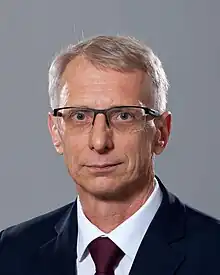 | |
| Prime Minister | Reform Party | 26 January 2021 |  | |
| Prime Minister | VVD | 14 October 2010 | .jpg.webp) | |
| Prime Minister | GS | 1 June 2022 | .jpg.webp) | |
National parliaments of European Union member states
| Country | Institution | Number of seats | Member parties | Status | |
|---|---|---|---|---|---|
| National Council Lower house | 15 / 183 | NEOS | Opposition | ||
| Federal Council Upper house |
1 / 61 |
NEOS | Opposition | ||
| Chamber of Representatives Lower house | 26 / 150 | MR | 14 / 26 |
Government | |
| Open Vld | 12 / 26 |
Government | |||
| Senate Upper house | 11 / 60 | MR | 6 / 11 |
Government | |
| Open Vld | 5 / 11 |
Government | |||
| National Assembly | 34 / 240 | MRF | Opposition | ||
| Sabor | 9 / 151 | HNS | 1 / 9 |
Government | |
| HSLS | 2 / 9 |
Confidence and supply | |||
| Glas | 1 / 9 |
Opposition | |||
| IDS-DDI | 3 / 9 |
Opposition | |||
| Centre | 2 / 9 |
Opposition | |||
| House of Representatives | 4 / 56 |
Democratic Alignment | Opposition | ||
| Chamber of Deputies Lower house | 72 / 200 | ANO | Opposition | ||
| Senate Upper house | 5 / 81 | ANO | Opposition | ||
| Folketing | 30 / 175 |
RV | 7 / 30 |
Opposition | |
| V | 23 / 30 |
Government | |||
| Riigikogu | 53 / 101 | EK | 16 / 59 |
Opposition | |
| ER | 37 / 59 |
Government | |||
| Parliament | 41 / 200 | Kesk | 31 / 41 |
Opposition | |
| SFP | 10 / 41 |
Government | |||
| National Assembly Lower house | 11 / 577 | UDI | 6 / 11 |
Opposition | |
| PR | 6 / 11 |
Government | |||
| Senate Upper house | 48 / 348 | UDI | 38 / 48 |
Opposition | |
| PR | 10 / 48 |
Government | |||
| Bundestag | 92 / 735 | FDP | Government | ||
| Országgyűlés | 10 / 199 | Momentum | Opposition | ||
| Dáil Lower house | 37 / 160 | FF | Government | ||
| Seanad Upper house | 21 / 60 | FF | Government | ||
| Chamber of Deputies Lower house | 12 / 400 | A | 10 / 12 |
Opposition | |
| RI, +E | 2 / 12 |
Opposition | |||
| Senate of the Republic Upper house | 4 / 205 | A | Opposition | ||
| Seimas | 23 / 141 | LRLS | 12 / 33 |
Government | |
| LP | 11 / 33 |
Government | |||
| Saeima | 0 / 100 | A/Par! | Extra-parliamentary | ||
| Chamber of Deputies | 12 / 60 | DP | Government | ||
| House of Representatives Lower house | 58 / 150 | VVD | 34 / 58 |
Government | |
| D66 | 24 / 58 |
Government | |||
| Senate Upper house | 19 / 75 | VVD | 12 / 19 |
Government | |
| D66 | 7 / 19 |
Government | |||
| Sejm Lower house | 39 / 460 | PL2050 | 33 / 460 |
Government | |
| .N | 6 / 460 |
Government | |||
| Senate Upper house | 19 / 75 | PL2050 | 5 / 100 |
Government | |
| .N | 0 / 100 |
Extra-Parliamentary | |||
| Assembly of the Republic | 8 / 230 | IL | Opposition | ||
| Chamber of Deputies Lower house | 55 / 330 | USR | Opposition | ||
| Senate Upper house | 25 / 136 | USR | Opposition | ||
| National Council | 32 / 150 | PS | Opposition | ||
| Congress of Deputies Lower house | 0 / 350 | Cs | Opposition | ||
| Senate Upper house | 0 / 266 | Cs | Opposition | ||
| Riksdag | 40 / 349 | C | 24 / 40 |
Opposition | |
| L | 16 / 40 |
Government | |||
National parliaments outside the European Union
| Country | Institution | Number of seats | Member parties |
|---|---|---|---|
| General Council | 4 / 28 | PLA | |
| National Assembly | 0 / 107 | ANC, Bright Armenia | |
| National Assembly | 0 / 125 | Musavat | |
| House of Representatives | 2 / 42 | Our Party | |
| Parliament | 6 / 150 | Republican, FD, SA, Lelo, Girchi MF | |
| Althing | 4 / 63 | Viðreisn | |
| Parliament | 0 / 101 | PL | |
| Assembly | 1 / 81 | LPCG | |
| Storting | 8 / 169 | Venstre | |
| National Council Lower house | 45 / 200 | FDP, GLP | |
| Council of States Upper house | 12 / 46 | FDP | |
| Verkhovna Rada | 261 / 450 | Servant of the People, Voice | |
| House of Commons Lower house | 15 / 650 | Liberal Democrats, Alliance | |
| House of Lords Upper house | 94 / 775 | Liberal Democrats | |
| Gibraltar Parliament unicameral | 3 / 17 | Libs |
Member parties

Outside the EU
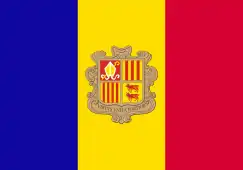 Action!
Action! Liberal Party of Andorra
Liberal Party of Andorra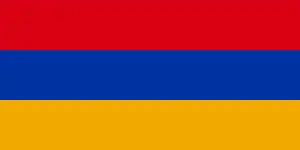 Armenian National Congress
Armenian National Congress Bright Armenia
Bright Armenia Musavat
Musavat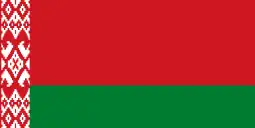 Party of Freedom and Progress
Party of Freedom and Progress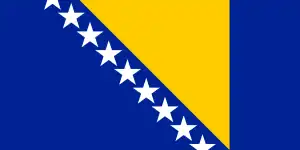 Our Party
Our Party Free Democrats
Free Democrats Republican Party of Georgia
Republican Party of Georgia Strategy Aghmashenebeli
Strategy Aghmashenebeli Lelo for Georgia
Lelo for Georgia Girchi - More Freedom
Girchi - More Freedom Reform Party
Reform Party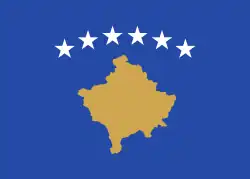 Democratic Party of Kosovo
Democratic Party of Kosovo New Kosovo Alliance
New Kosovo Alliance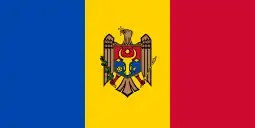 Liberal Party
Liberal Party Coalition for Unity and Wellbeing
Coalition for Unity and Wellbeing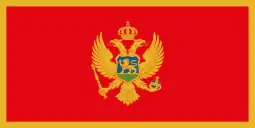 Liberal Party of Montenegro
Liberal Party of Montenegro Liberal Democratic Party
Liberal Democratic Party Liberal Party
Liberal Party People's Freedom Party
People's Freedom Party Yabloko
Yabloko Movement of Free Citizens
Movement of Free Citizens.svg.png.webp) FDP.The Liberals
FDP.The Liberals.svg.png.webp) Green Liberal Party of Switzerland[7]
Green Liberal Party of Switzerland[7] Civil Position
Civil Position European Party of Ukraine
European Party of Ukraine Servant of the People
Servant of the People Power of the People
Power of the People Voice
Voice Liberal Democrats
Liberal Democrats Alliance Party of Northern Ireland
Alliance Party of Northern Ireland Liberal Party of Gibraltar
Liberal Party of Gibraltar
See also
References
- ↑ Nordsieck, Wolfram (2019). "European Union". Parties and Elections in Europe. Archived from the original on 8 June 2017. Retrieved 30 May 2019.
- ↑ "Archived copy". Archived from the original on 13 November 2013. Retrieved 13 November 2013.
{{cite web}}: CS1 maint: archived copy as title (link) - ↑ "European Liberal Democrats change party name to ALDE Party | ALDE Party". Eldr.eu. Archived from the original on 13 February 2013. Retrieved 23 September 2013.
- ↑ "ALDE-party Bureau". Archived from the original on 26 May 2019. Retrieved 5 April 2018.
- 1 2 Dimitri Almeida (2012). The Impact of European Integration on Political Parties: Beyond the Permissive Consensus. Taylor & Francis. pp. 102–103. ISBN 978-1-136-34039-0.
- ↑ "Macron-Liberal alliance to be named Renew Europe". Politico. 12 June 2019.
- 1 2 "ALDE Party Council meets in Zürich". ALDE. 28 June 2019.